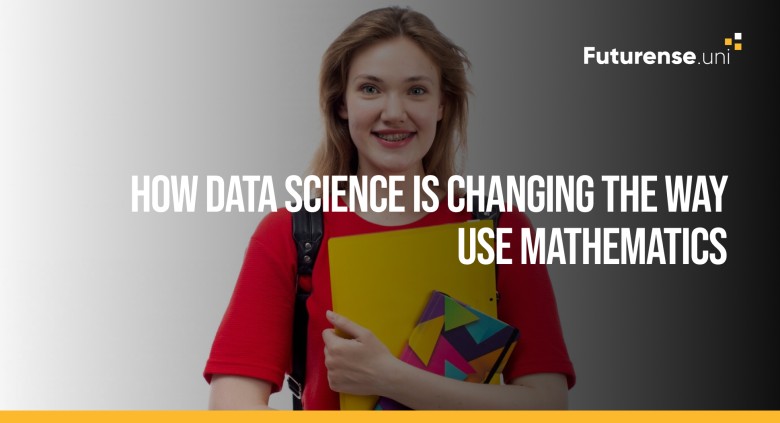Introduction
Mathematics has always been a cornerstone of discovery, but data science transforms how we apply it in the digital age. With tools and techniques evolving rapidly, professionals now need advanced skills to stay ahead. Programs like the online IIT BSc in Data Science are bridging this gap, offering cutting-edge education to master data analytics and mathematical innovation. In this blog, we’ll explore how data science is revolutionizing mathematics and why this shift matters.
The Traditional Use of Mathematics
Before the rise of data-driven methodologies, mathematics was primarily used in theoretical and applied fields such as engineering, economics, and physics. Over time, its applications expanded to various industries, shaping decision-making and problem-solving. Some traditional uses of mathematics include:
- Engineering & Physics – Calculus and algebra were essential for designing structures, machinery, and scientific models.
- Finance & Economics – Probability and statistics helped in risk assessment, stock market predictions, and economic modeling.
- Research & Academia – Mathematical theories formed the foundation of scientific advancements and innovations.
- Computing & Algorithms – Early computational methods relied on mathematical logic and problem-solving techniques.
Today, courses like IIT Data Analytics Programs integrate mathematical principles with real-world applications. Concepts such as Deep Learning Mathematics are now reshaping how data is analyzed, offering new ways to solve complex problems beyond traditional approaches.
The Role of Mathematics in Data Science
Mathematics plays a crucial role in data science, providing the foundation for analyzing trends, making predictions, and solving complex problems. From statistical methods to advanced computations, mathematical principles are essential in extracting meaningful insights from vast datasets.
Key areas where mathematics in data science is applied include:
- Linear Algebra – Used in data processing, matrix computations, and dimensionality reduction.
- Probability & Statistics – Helps in understanding data distributions, hypothesis testing, and predictive modeling.
- Optimization Techniques – Essential for improving efficiency in algorithms and minimizing errors in data analysis.
- Graph Theory – Applied in social network analysis, search engine algorithms, and data structuring.
The growing intersection of AI and mathematics has further expanded the role of mathematical concepts in solving real-world problems. Mathematical modeling enables data scientists to develop algorithms that improve decision-making across industries such as healthcare, finance, and business analytics. With a strong mathematical foundation, data science professionals can create better forecasting models, detect patterns in data, and optimize solutions.
As the demand for data-driven decision-making increases, mastering mathematical principles is becoming essential for anyone looking to build expertise in data science.
Read Our Blog on: Is a BSc. in Data Science Worth It in 2025?
How Data Science is Changing Mathematical Applications
With the increasing demand for data-driven skills, institutions like Futurense are revolutionizing learning by integrating mathematics with real-world applications. Modern courses, including the IIT BSc Online Degree, are equipping students with the knowledge to apply mathematical concepts in evolving fields like data science, finance, and engineering.
Traditionally, mathematics was used for static calculations and theoretical problem-solving. However, with the rise of data science, mathematical applications have evolved significantly:
- Real-Time Data Processing – Instead of working with fixed equations, dynamic mathematical models now adapt to changing data.
- Predictive Analytics – Probability and statistics are now being used to forecast trends in business, healthcare, and economics.
- Algorithm Development – Mathematical optimization techniques help refine models for improved decision-making.
- Big Data Management – Linear algebra and statistical methods are applied to analyze massive datasets efficiently.
Programs like BSc Courses in IIT focus on bridging traditional mathematical concepts with modern computational techniques. Students learn to apply mathematical models in various domains, making them industry-ready for data analysis, research, and problem-solving roles.
As industries increasingly rely on data science, the role of mathematics continues to expand, shaping the way we interpret data and make informed decisions.
Also, read this blog: Deep Learning vs Machine Learning: Complete Guide
Future of Mathematics in Data Science
Mathematics forms the backbone of data science, driving advancements in machine learning, AI, and predictive analytics. As industries increasingly rely on data-driven decisions, professionals with strong mathematical foundations—particularly in linear algebra, calculus, probability, and statistics—will remain in high demand, for students pursuing a BSc in IIT without JEE, primarily through an IIT BSc online degree, mastering these mathematical concepts can open doors to lucrative careers in data science.
Leading institutions like IITs now offer specialized BSc courses in programming, AI, and data science, making quality education accessible online. An online BSc from IIT equips learners with computational and analytical skills essential for modern data roles. With the rise of big data, mathematicians who understand algorithms and statistical models will shape innovations in healthcare, finance, and automation.
Conclusion
The intersection of mathematics and data science is shaping the next wave of technological innovation. As industries evolve, professionals with expertise in analytical and computational methods will lead transformative advancements. Institutions are now offering flexible learning pathways, empowering students to build these critical skills. At Futurense, we are committed to guiding aspiring talent through this journey—transforming knowledge into real-world impact. By bridging academia and industry, we help shape the future of data-driven solutions, ensuring learners are prepared to thrive in this dynamic landscape.





















Facebook Conversations
Disqus Conversations